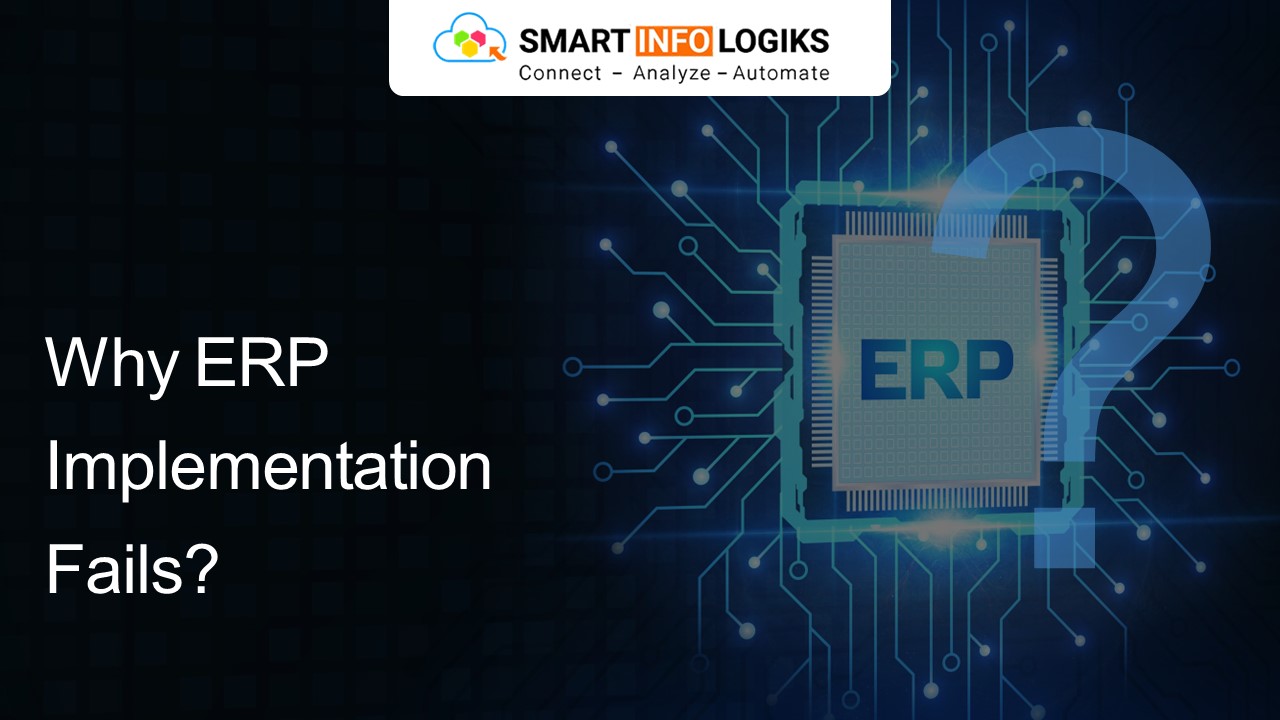Why ERP implementation Fails? - PPT - PowerPoint PPT Presentation
Title:
Why ERP implementation Fails? - PPT
Description:
Developing an ERP solution brings positive transformation and long-term advantages. Define business objectives for ERP software goals. Challenges may arise during integration, leading to production shutdowns, off-budget expenses, or low ROI. Smartinfologiks' ERP software, BizSuite, streamlines operations by automating processes like accounting, sales, Project Management, Inventory Management, CRM, HRMS, and more. It offers real-time data and analytics for improved decision-making and increased efficiency. – PowerPoint PPT presentation
Number of Views:12
Title: Why ERP implementation Fails? - PPT
1
?
Why ERP Implementation Fails?
2
Introduction
Enterprise resource planning (ERP) software often
arrives with several confirmations. Right from
fixing service industry errors and data
collection to saving ERP implementation costs. In
contrast, there is always room for delusions
during and after implementation.
3
Common Reasons for Failure
Lack of Realistic Expectations
Negligence to Embrace Change
Lack of Shareholders Commitment
Lack of Proficient Project Managers
Lack of Budgeting for Equivalent Software
Overburdening of IT Department
Inadequacy to Train End Users
4
Lack of Realistic Expectations
Companies often charge a lot without a plan with
a precise definition of their business
requirements and goals- the main ingredient of
failure. Institutions must set their benchmarks
and precisely define what is a success or a
failure coupled with the drawbacks around the
corners. Businesses shouldnt allow the software
to decide their business processes. The key is to
align the software with business requirements.
5
Negligence to Embrace Change
Most companies often flame out to consider ERP
implementation as a critical business asset. No
effort lies in assessing user acceptance of the
novel system. However, change is the only
constant, and firms shouldnt underestimate the
change as it can harm an institution. To
circumvent such challenges, firms must be ready
for any change emerging from ERP implementation.
Staff engagement and opinions can help ease the
implementation process. Additionally, solution
compatibility with the companys culture is a
must. Employees within the firm must be ready to
adapt to emerging changes.
6
Lack of Shareholders Commitment
ERP implementation is not an overnight task! It
requires support from stakeholders and employees,
too. Undoubtedly, getting top executives involved
in a task is a challenge. For stakeholders
onboarding, you will have to impart proper
training, coaching, or any other activity that
can help you attain business goals. Besides, its
essential to warn stakeholders of potential
risks, irrespective of the big rewards that lie
in ERP implementation.
7
Lack of Proficient Project Managers
Poor project management is a common phenomenon
within organizations. Activities as intense as
ERP implementation involve emerging issues. Good
leadership is the need of the hour to hold people
and track things. To avoid such odds, employ
someone to take charge of the implementation and
management. If you dont happen to find someone
proficient, outsource your ERP implementation
needs.
8
Lack of Budgeting for Equivalent Software
Companies overlook that they might require some
additional software during or after the
implementation process. That is, no budgeting is
set to cater to such overheads. Significantly,
these overlooked accompaniments lead to the
failure of parts if not the ERP system. Its
recommended to have a set budget for such ERP
implementation scope.
9
Overburdening of IT Department
ERP implementation process demands a lot from the
IT department. However, the IT department is not
responsible for the manufacturing and financial
process. Therefore, theyre not proficient enough
to change in these segments. Expert integration
within vital business processes of a firm can
serve as direct support for ERP implementation in
particular departments.
10
Inadequacy to Train End Users
Post-ERP implementation, companies assume that
the employees can proficiently use the ERP
system. Hence, companies abort investing in
employee training. Authoritative personnel of the
company must appoint a dedicated project manager,
or ambassador who possesses a deep understanding
of the ERP solution. These individuals must be
proficient enough to train fellow employees
concerning the usage and functionalities of the
system. This strategy boosts the possibilities of
a successful ERP implementation.
11
Thank You For Watching
sales01_at_smartinfologiks.com
91 7400064691
www.smartinfologiks.com































